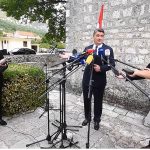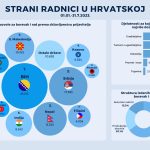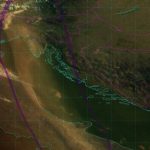ZAGREB, February 8, 2018 – The Bosniak member of the Presidency of Bosnia and Herzegovina, Bakir Izetbegović dismissed claims by his Croat counterpart Dragan Čović that the demographic domination of Bosniaks was threatening to establish an Islamic state in the country.
In an interview with the Slobodna Bosna web portal, Izetbegović said that Čović’s statements were just recycling old theories which are dragged out now and then “as a stick’ since 1983 and the Sarajevo trial against a group of Muslim intellectuals, led by his father Alija Izetbegović, for counter-revolutionary activities.
“Now that (stick) was given new energy and a chance by the Islamophobia caused by the migrant crisis. The aim is to weaken the position of Bosniaks, burden them with radicalism and in that way compensate for the weakening position of the HDZ (Bosnia’s Croatian Democratic Union party) following the Hague tribunal’s conviction of (Jadranko) Prilić and the others, and in that way create pressure that would lead to solutions that suit the HDZ,” Izetbegovic claimed.
Izetbegović commented on a statement by Čović earlier in the week in Zagreb, when the leader of the HDZ BiH party claimed that a civic state in Bosnia and Herzegovina in fact means a unitarian and therefore an Islamic state, as that would bring into question the rights of the two other constituent peoples.
Čović made a similar statement in Brussels last week when the three members of the Bosnian Presidency spoke with the president of the European People’s Party (EPP), Joseph Daul.
Izetbegović believes that Čović’s and the HDZ BiH’s aim is not the territorial division of the country, “even though those threats are being made too,” but a “division of the electoral base,” i.e. public broadcasting, institutions and ministries.
“That is why Dragan Čović went on an attack in front of Daul with the argument about a ‘radical Bosniak right,’ and ‘intentions of establishing an Islamic state on BiH territory.’ Naturally, that doesn’t exist, but there is a radical Croat right and there is the Hague tribunal ruling determining a joint criminal enterprise,” Izetbegović added.
Commenting on disputes over amendments to the electoral law, Izetbegović said that he expected the country’s parliament to discuss that after mediators from the European Union, the US, and Office of the High Representative (OHR) conduct individual consultations with party leaders and when the ‘outlines’ of a possible solution are defined.
“I presume that they (mediators) will try to crystallise a solution acceptable to everyone, or to a necessary majority, and then that might be adopted as a proposal of that majority, which will then be put to the parliament,” he said.
In January, two electoral bills put forward by the HDZ BiH and Bosniak Party for Democratic Action (SDA) were quashed.
The deadline to amend the electoral law is early May or six months prior to general elections scheduled for October 7.








